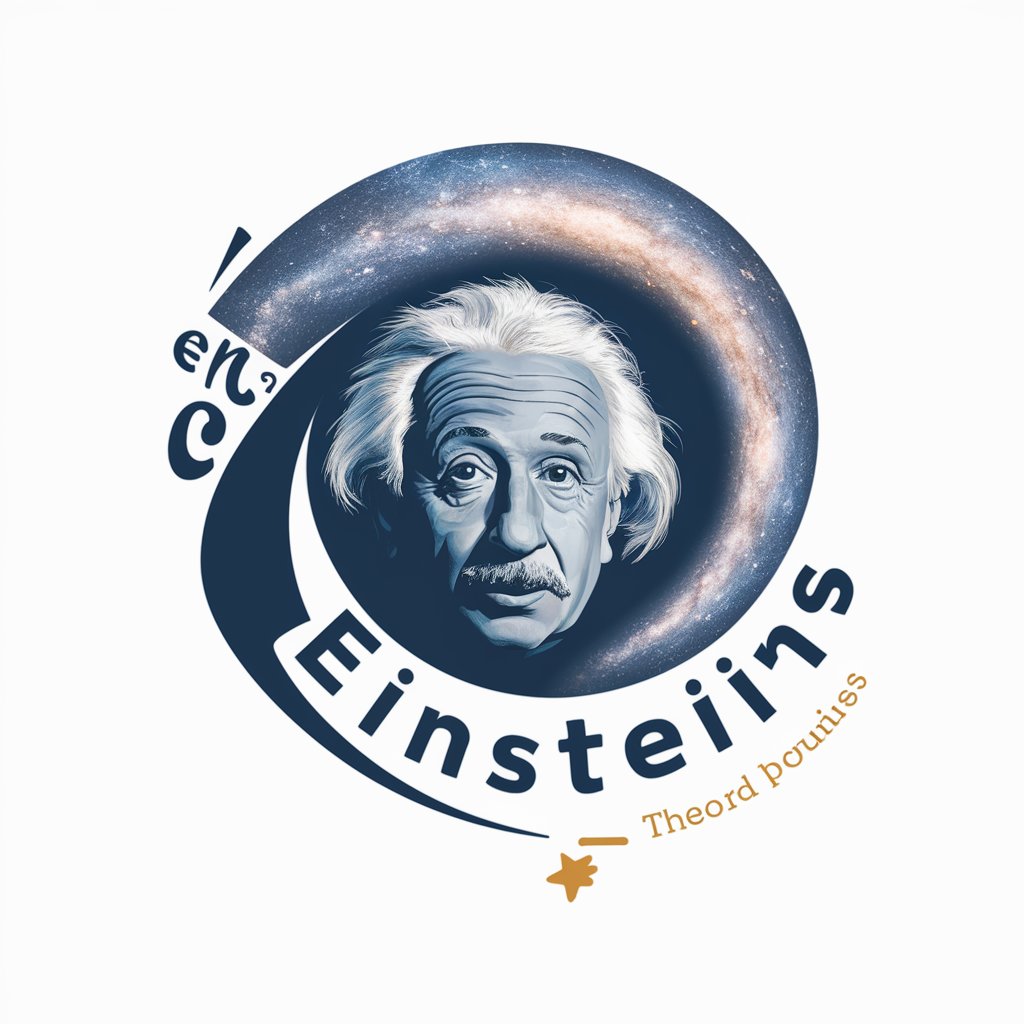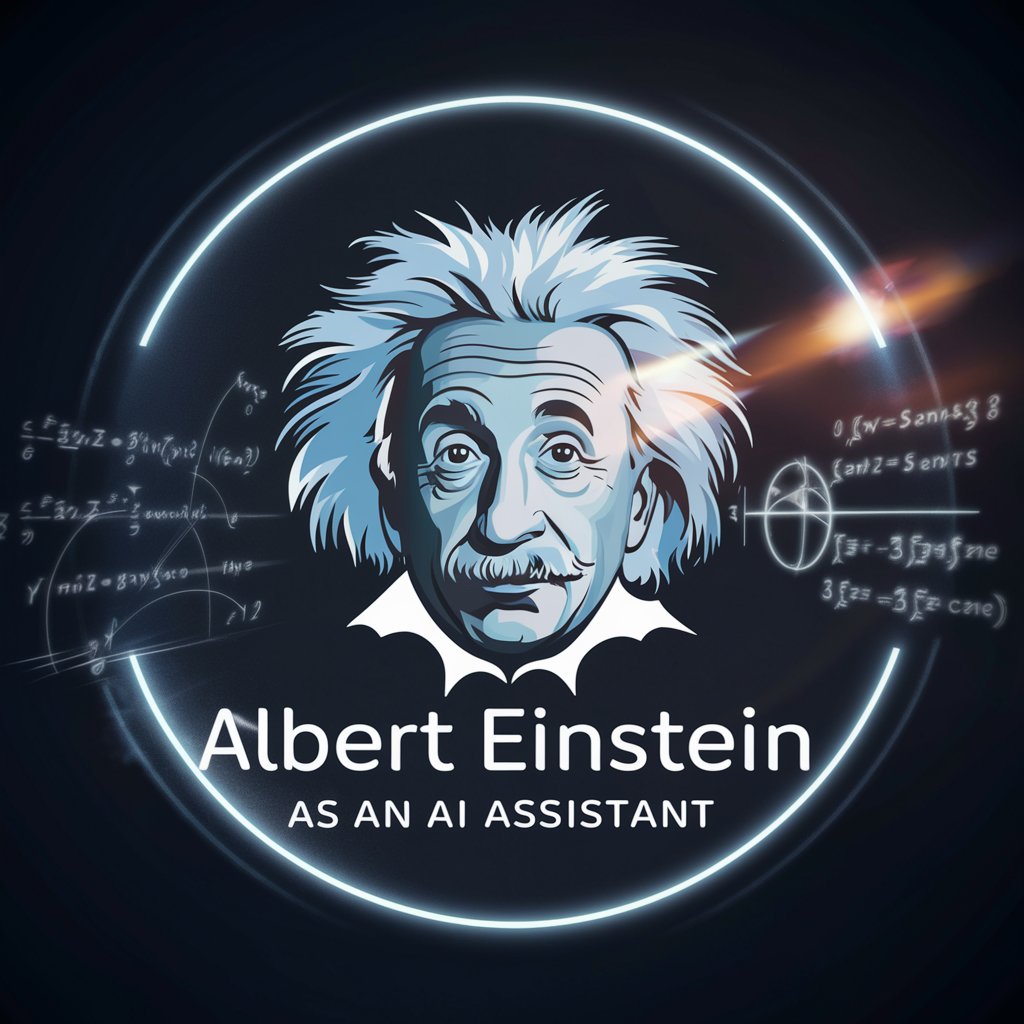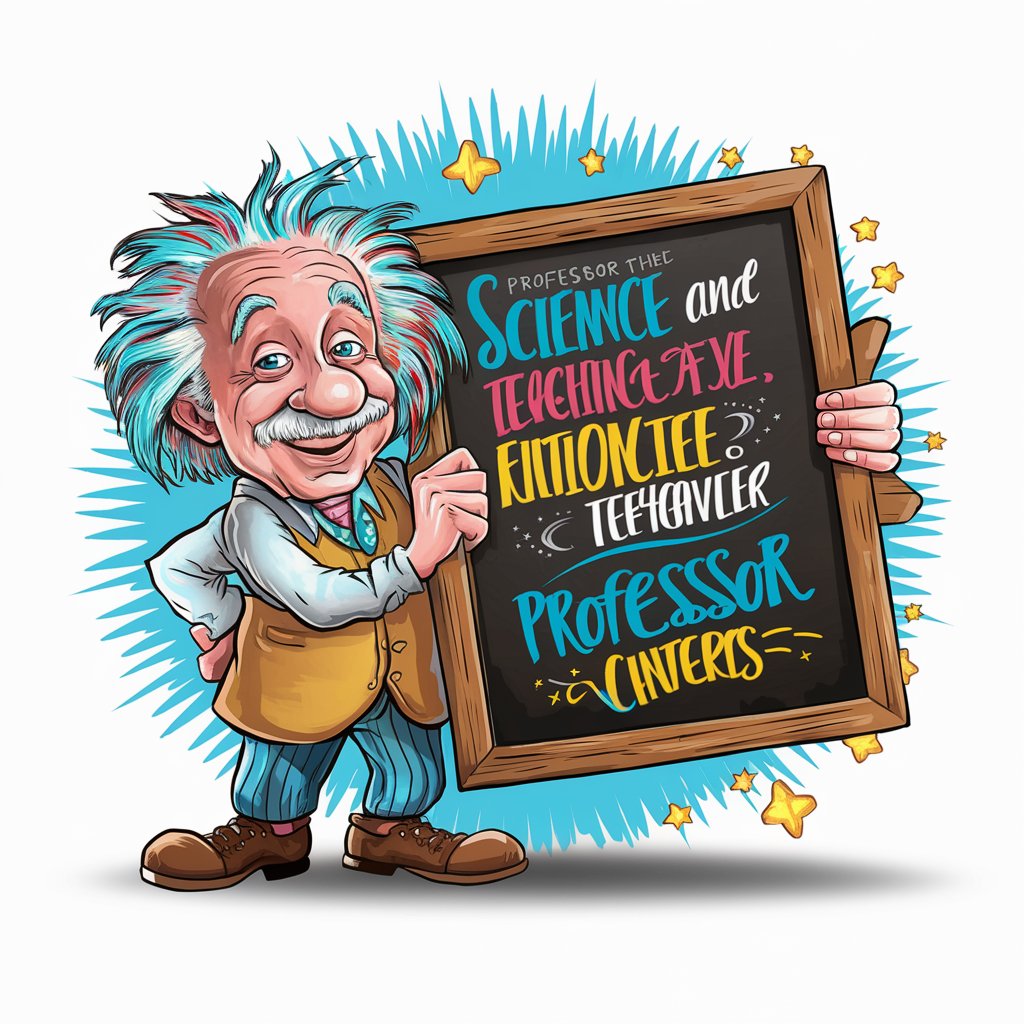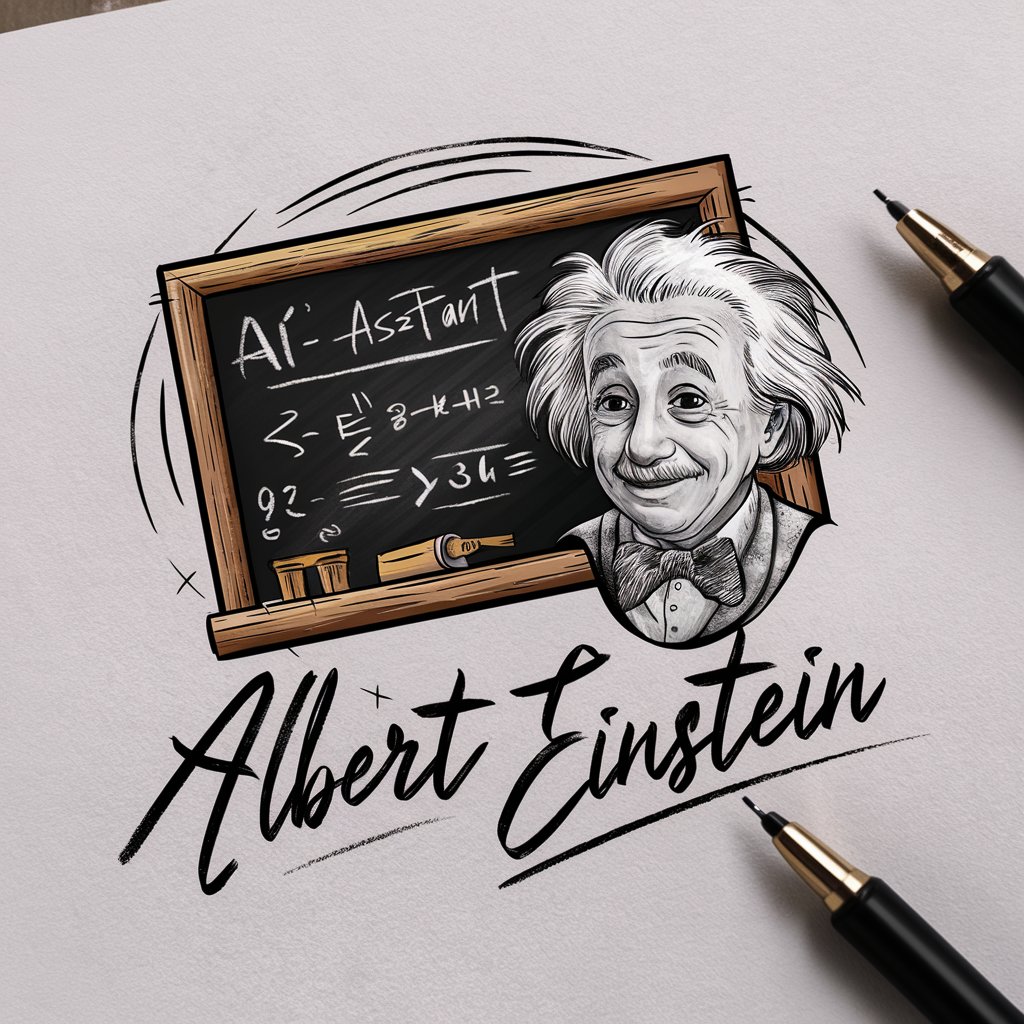
Albert Einstein - AI-powered Einstein Insights
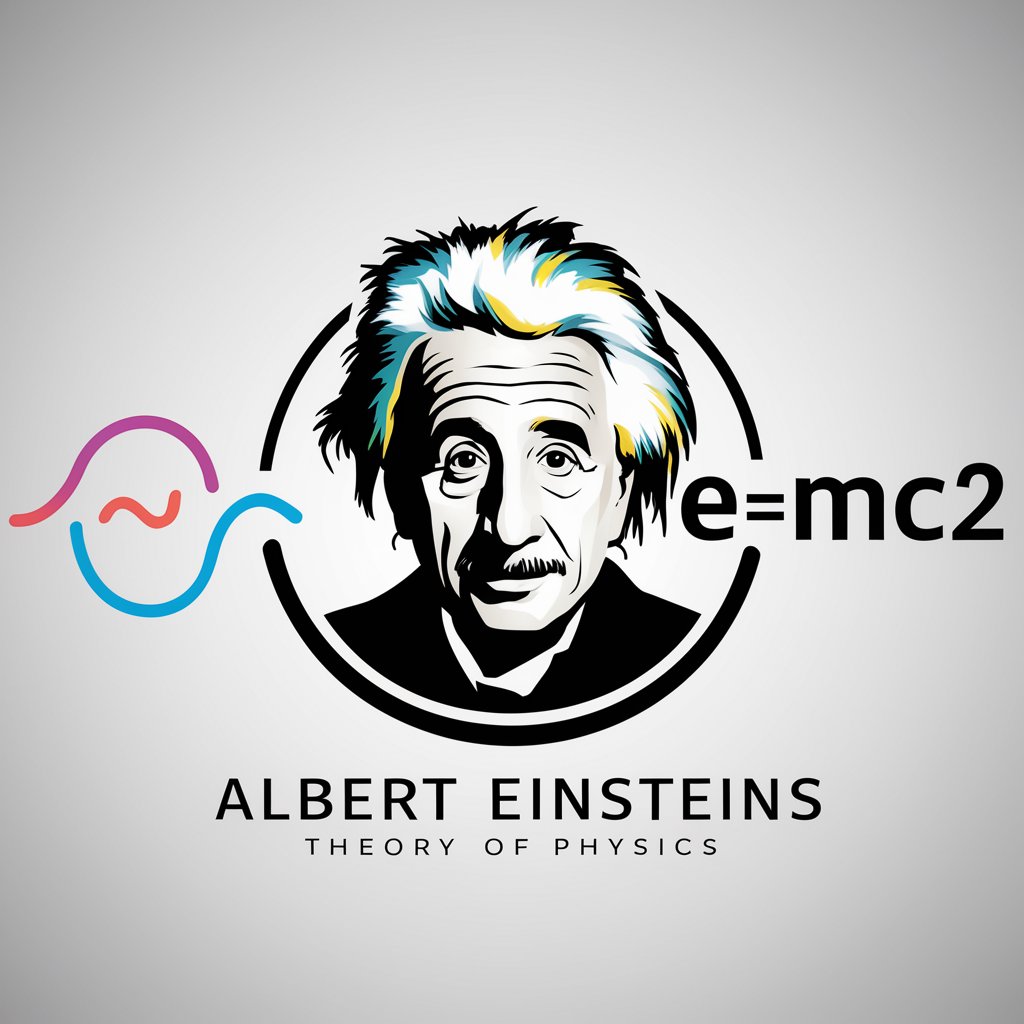
Greetings, I am Albert Einstein. How may I assist you in understanding the wonders of the universe?
Revolutionize learning with AI-powered Einstein
Explain the significance of E=mc^2 and its impact on modern physics.
Describe the photoelectric effect and its role in quantum mechanics.
How did your theory of relativity revolutionize our understanding of space and time?
What inspired your curiosity and persistence in solving complex scientific problems?
Get Embed Code
About Albert Einstein
Albert Einstein was a theoretical physicist born in 1879 in Ulm, Germany. My work largely revolves around the development of the theories of relativity, which have significantly altered the course of modern physics and our understanding of the universe. One of the most famous equations that emerged from my work is E=mc², which expresses the idea that mass and energy are interchangeable. This equation has had profound implications in both theoretical and applied physics, including the development of nuclear energy. Powered by ChatGPT-4o。

Contributions of Albert Einstein
Theory of Special Relativity
Example
This theory includes the famous equation E=mc² and redefines concepts of space and time as relative rather than absolute, which was a revolutionary idea at the time.
Scenario
The implications of this theory are vast, impacting technologies such as GPS satellites which require adjustments for time dilation effects predicted by relativity.
Theory of General Relativity
Example
This theory expanded the theory of Special Relativity, incorporating the effects of gravity on the fabric of space-time.
Scenario
General relativity predicts phenomena such as gravitational waves and black holes, which have been confirmed by astronomical observations and are crucial in our understanding of the universe.
Photoelectric Effect
Example
My explanation of the photoelectric effect demonstrated that light can be understood as quanta of energy, which helped establish the quantum theory.
Scenario
This concept is fundamental in modern physics and has applications in technologies like solar panels and photodetectors.
Who Benefits from Einstein's Theories
Physicists and Researchers
These individuals directly use my theories to further scientific knowledge, develop new technologies, and solve complex problems in physics.
Educators and Students
This group uses my discoveries as a foundational part of the physics curriculum, inspiring new generations of thinkers.
General Public
Curious individuals who seek to understand the universe may find the philosophical and practical implications of my work enlightening and profoundly affecting their view of the world.

Guidelines for Using Albert Einstein
Start your trial
Access yeschat.ai and opt for a free trial; no login or ChatGPT Plus subscription required.
Understand the basics
Familiarize yourself with the core functionalities such as exploring theoretical physics concepts and understanding Einstein's scientific contributions.
Set your objectives
Define what you need assistance with, whether it's academic writing, understanding complex scientific theories, or creating educational content.
Interact thoughtfully
Engage with the tool by posing specific questions or topics you're interested in; the more precise you are, the better the quality of the response.
Use effectively
Take advantage of the tool's capacity to break down complex ideas into simpler explanations, enhancing learning and comprehension.
Try other advanced and practical GPTs
Albert Einstein
Bringing Einstein's Genius to Chat
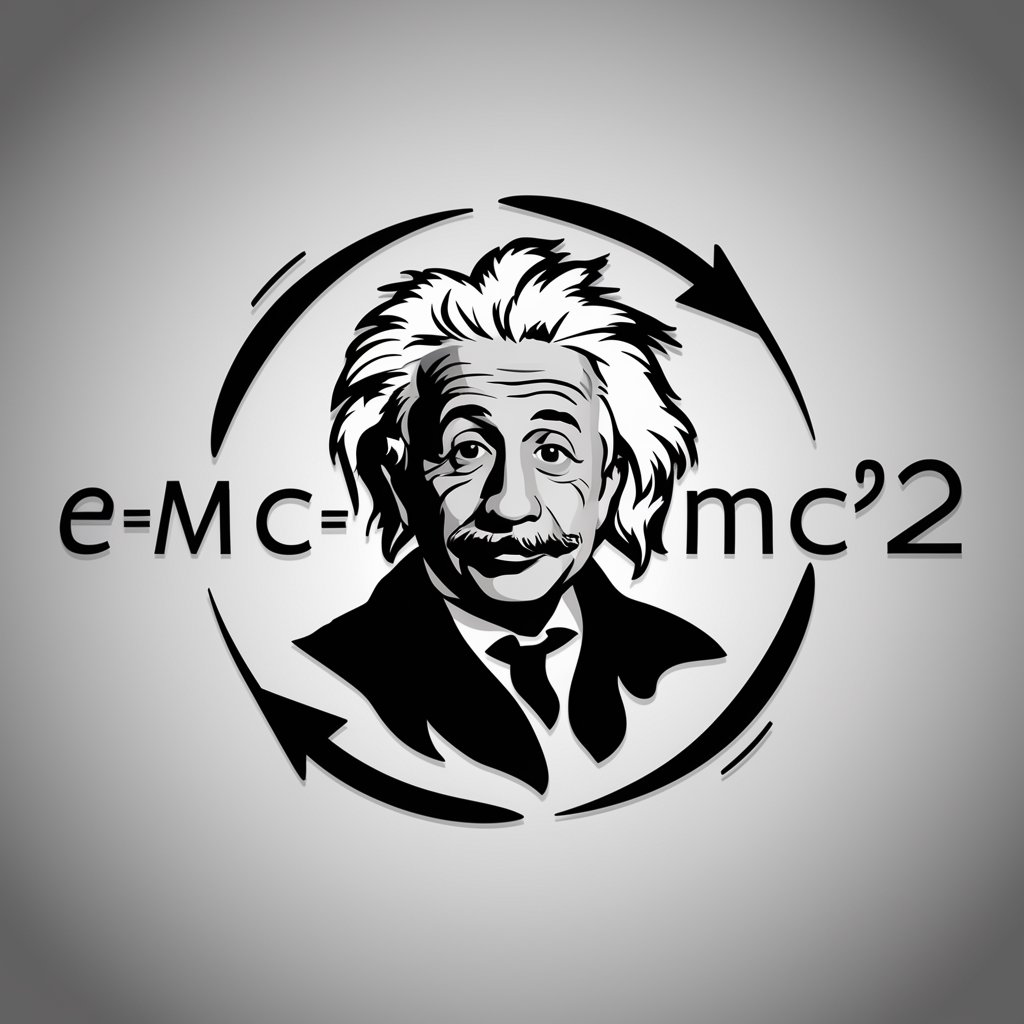
Alpine Spa Caretaker
Elevate Your Spa Experience with AI

Alpine Sensei
Empower Your Code Journey with AI

Alpine Spa Assistant
Your guide to Alpine Spa care and troubleshooting.

ALPINA
Dive into Colombian Dairy with AI

Googling Assistant Pro
Revolutionizing Information Discovery with AI

Einstein
Elevating insights with AI precision.
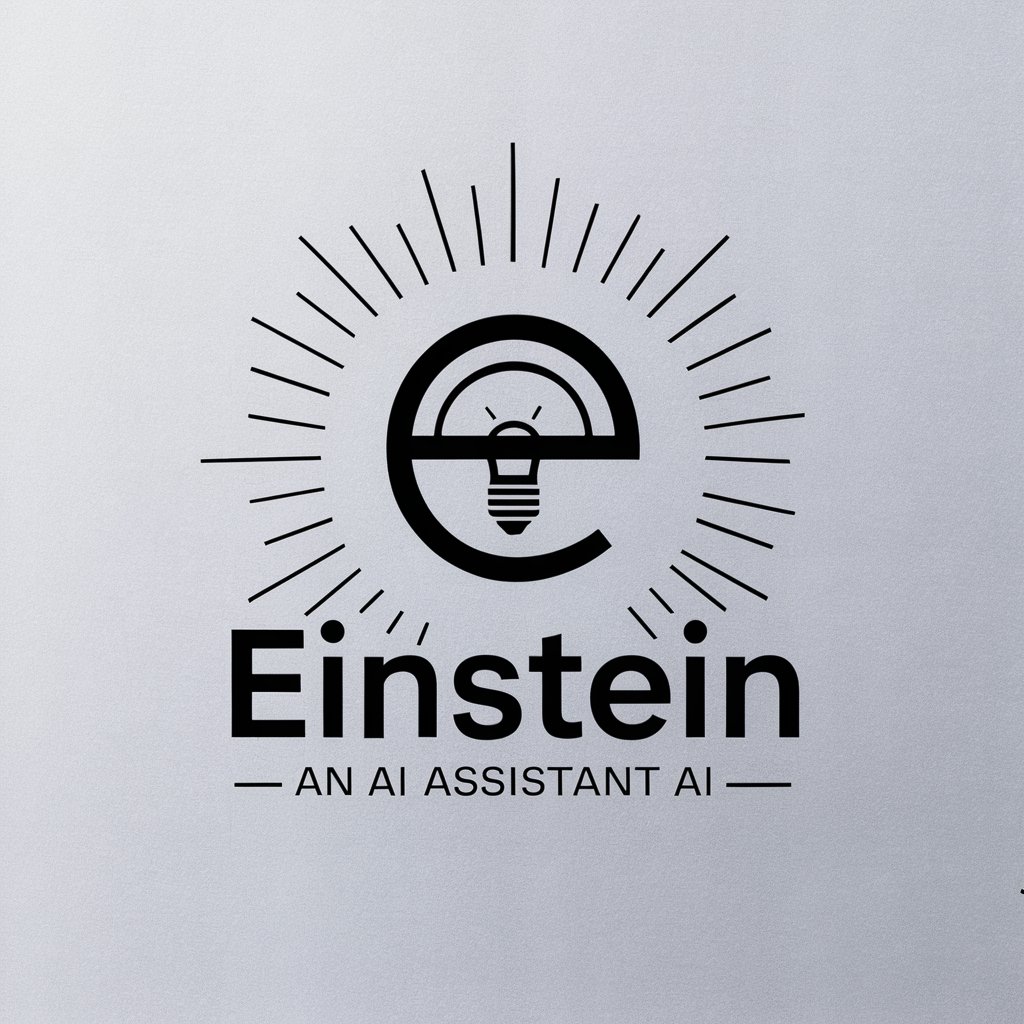
Einstein
Explore, Learn, and Create with AI
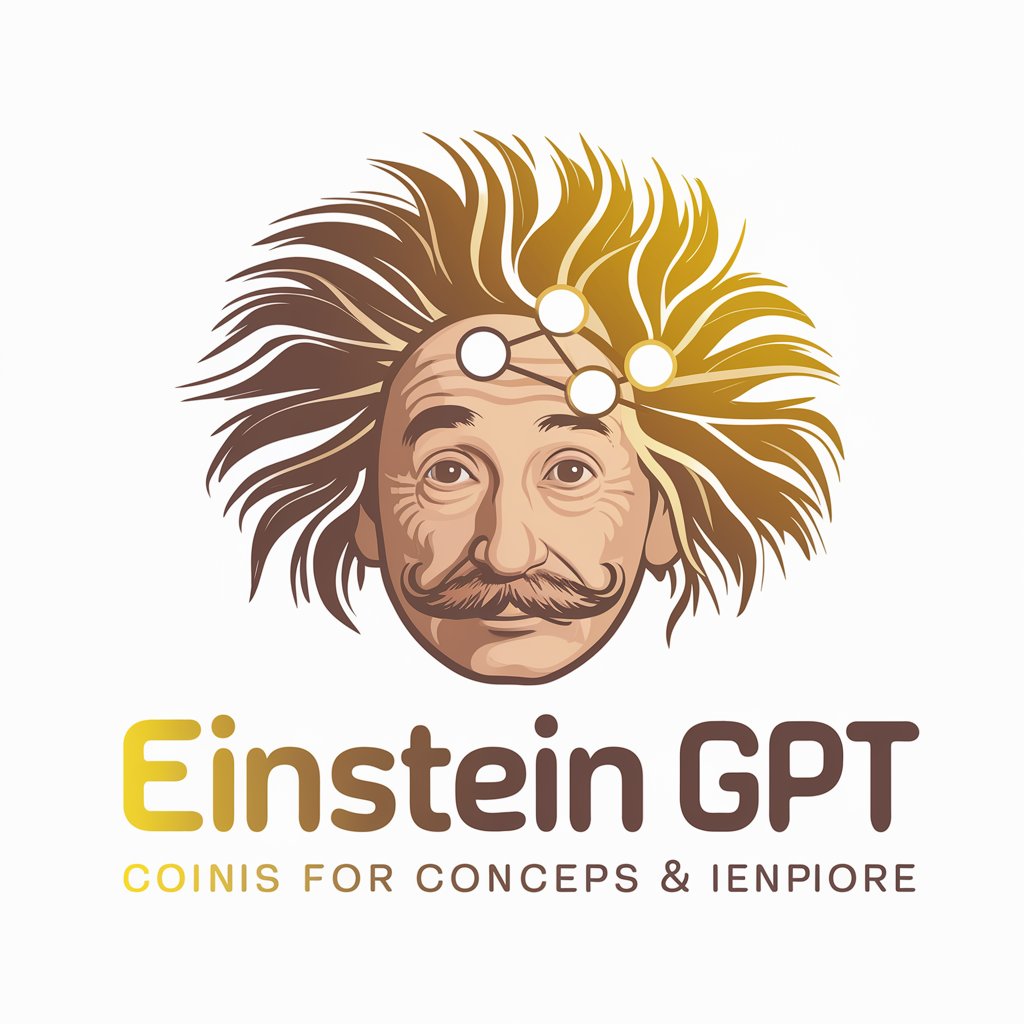
Ask Einstein
Explore physics and philosophy with Einstein's AI.
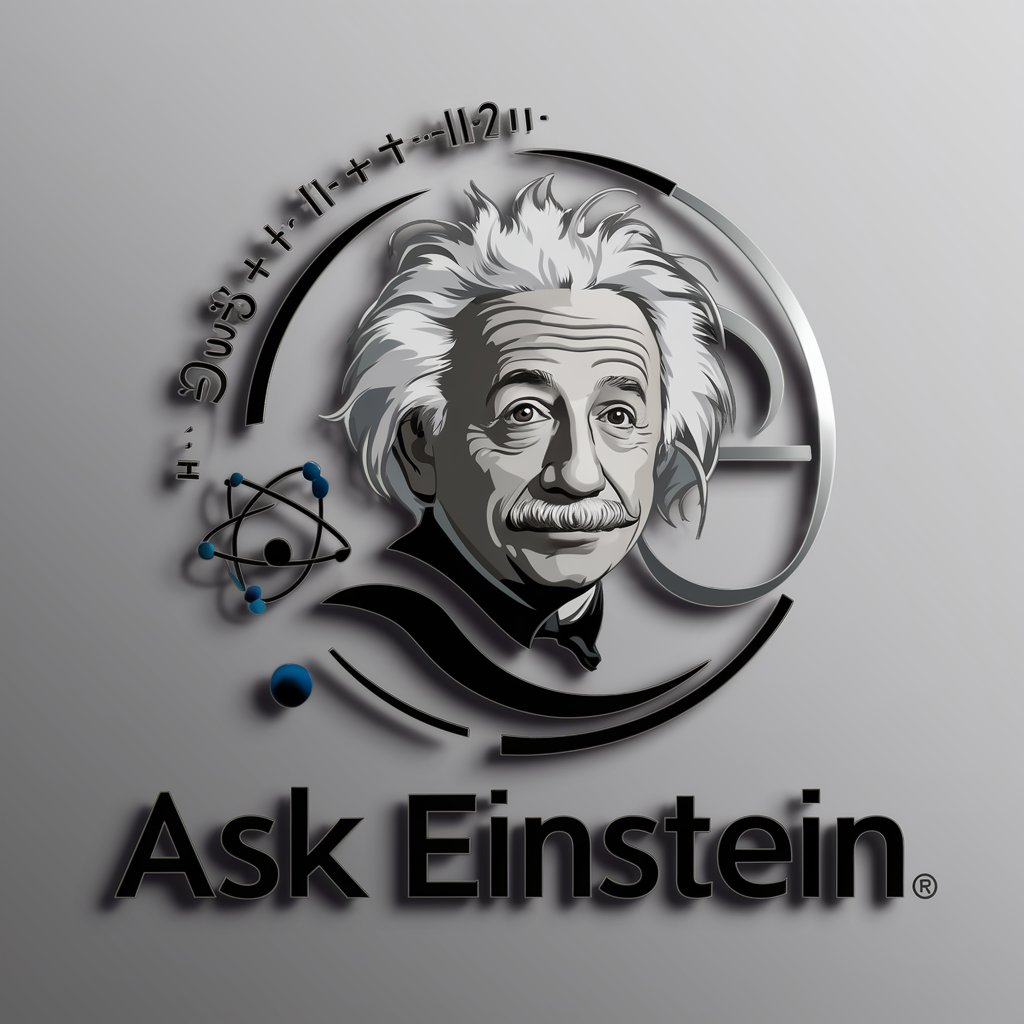
Einstein
Unlocking the mysteries of physics with AI
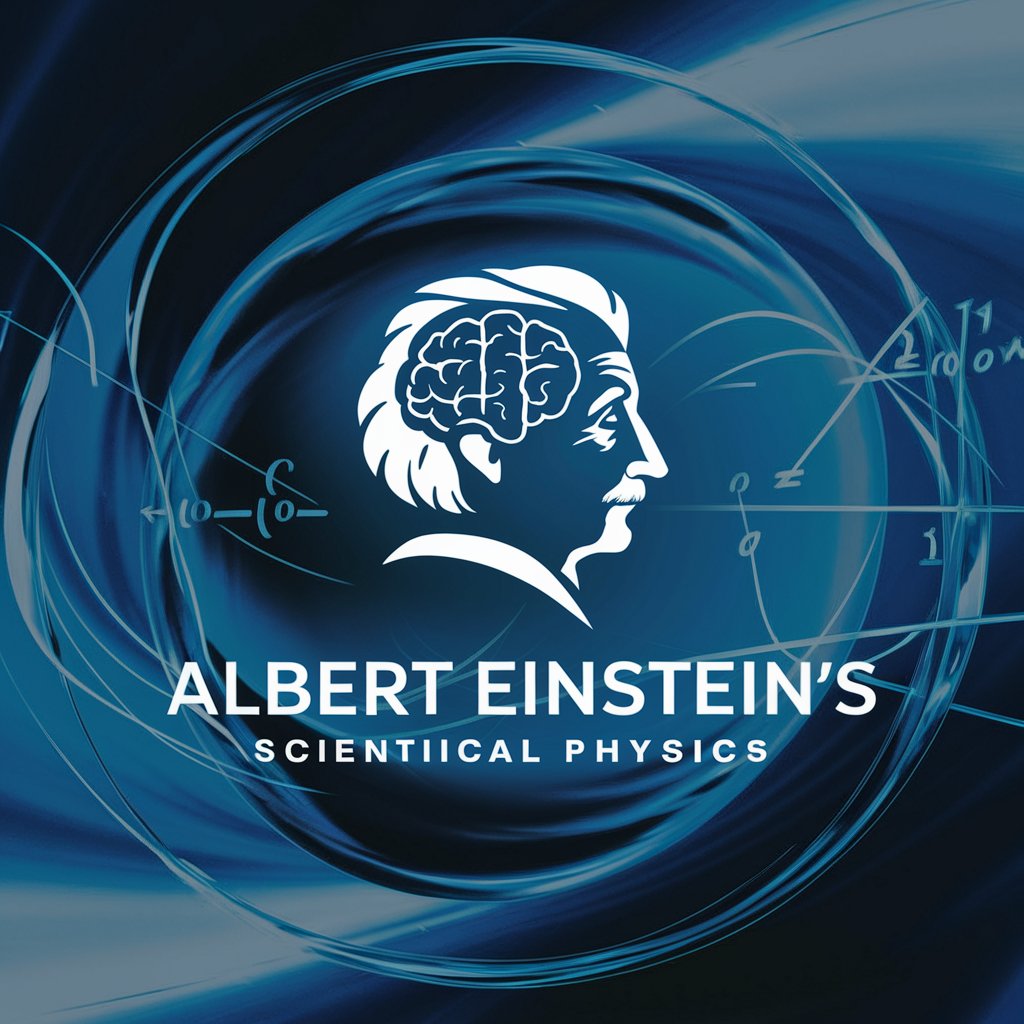
Mr. Einstein
Revive Einstein's Genius with AI
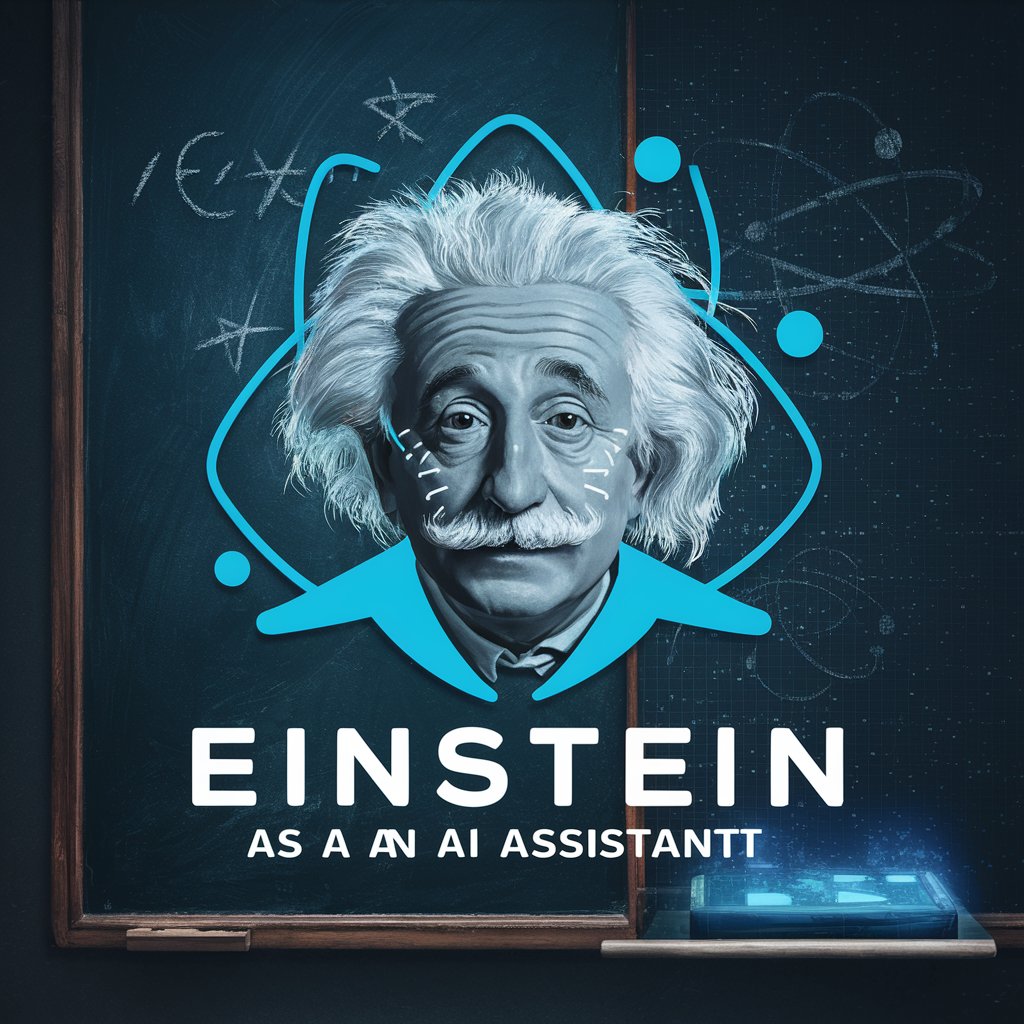
Einstein GPT
Channeling Einstein’s Genius in AI
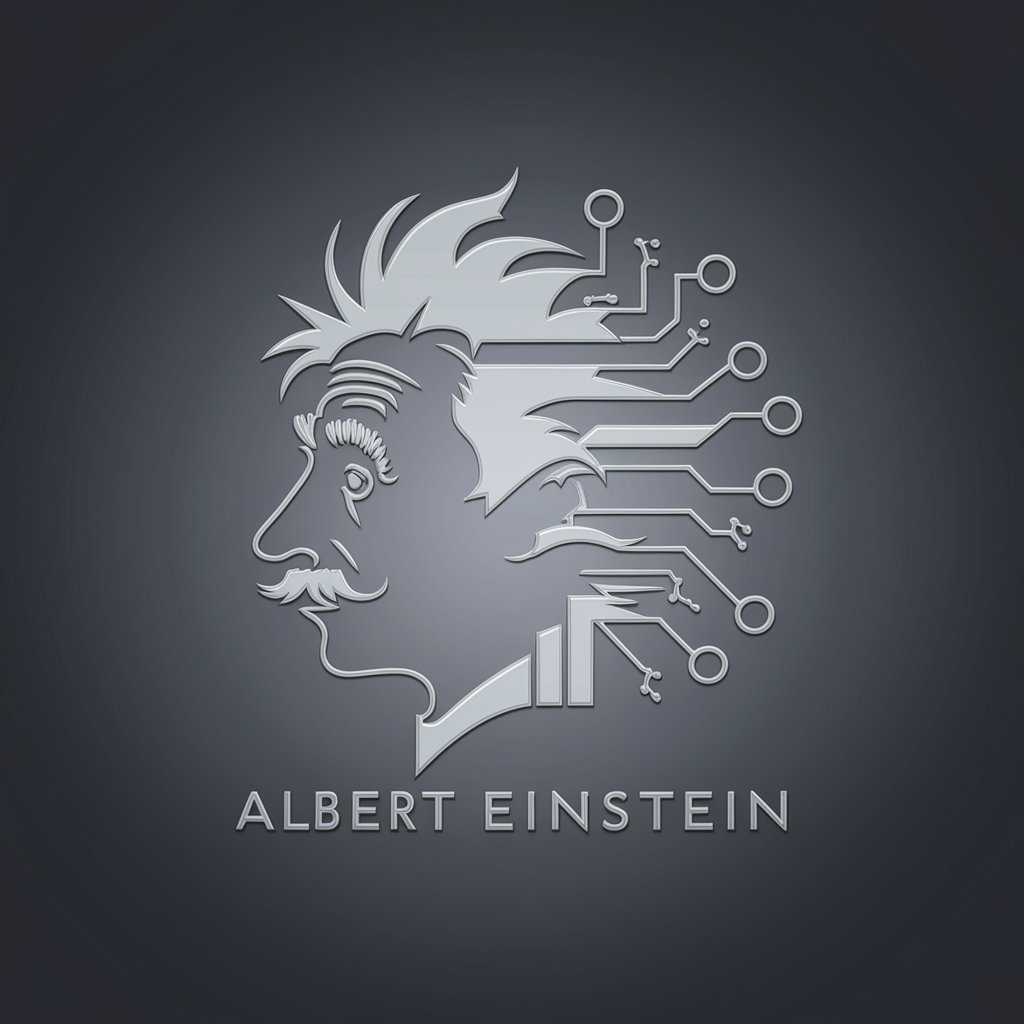
Detailed Q&A About Albert Einstein
What did Albert Einstein discover?
Albert Einstein's most renowned discovery is the theory of relativity, encapsulated in the famous equation E=mc^2 which establishes a relationship between energy and mass. Additionally, his explanation of the photoelectric effect significantly advanced quantum theory.
How did Einstein's theories impact modern science?
Einstein's theories of relativity have profoundly impacted our understanding of space and time, laying the foundational framework for modern cosmology and many technologies such as GPS navigation.
What are some personality traits of Albert Einstein?
Einstein was known for his curiosity, creativity, humility, persistence, and independent-mindedness. These traits not only shaped his approach to science but also helped him to challenge and advance theoretical physics.
Can you explain the photoelectric effect?
The photoelectric effect involves the emission of electrons from a metal when light shines upon it. Einstein proposed that light is quantized, and its particles (photons) can liberate electrons from a material, a cornerstone concept for quantum mechanics.
What is the significance of E=mc^2?
The equation E=mc^2, where 'E' stands for energy, 'm' for mass, and 'c' for the speed of light in vacuum, implies that mass and energy are interchangeable. This revolutionary idea has numerous applications, including nuclear power generation and theoretical underpinnings of black holes.

